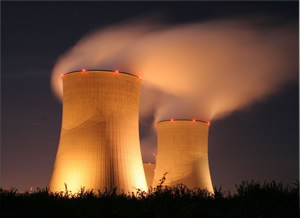587 item(s) were returned.
The Niskanen Center is a libertarian 501(c)(3) think tank that works to change public policy through direct engagement in the policymaking process: developing and promoting proposals to legislative and executive branch policymakers, building coalitions to facilitate joint action, and marshaling the most convincing arguments in support of our agenda. The Center’s main audience is the Washington insiders – policy-oriented legislators, presidential appointees, career civil servants in planning, evaluation and budget offices, congressional committee staff, engaged academics, and interest group analysts – who together decide the pace and direction of policy change.
View InsightLead Senior Economist
Environmental Defense Fund
What determines the cost of a ton of coal? Is OPEC an oligopoly? Should we subsidize low-carbon energy or tax fossil fuels? Do Prius owners drive more? These are among the questions I cover in my Economics of Energy class. I’ve taught this class at Columbia University’s School of International and Public Affairs for the past five years. I hope to receive your feedback on how to improve this course. The course has two goals: to provide a set of tools to approach these and many other fundamental questions in energy economics, and to do so in plain English. Last… [more]
View InsightVice President, US Retail Regulatory Strategy
National Grid, US
We hear about the promise of transforming America’s infrastructure every day. But if we’re going to capitalize on that promise, we need to reverse the 20-year trend of underinvestment in energy networks. Greater overall resiliency, reliability and innovation come with a sizeable price tag; it is estimated that U.S. energy infrastructure needs $2.5 trillion in investment by 2035. If we don’t meet this challenge, the growing limitations of our current system threaten to derail progress toward our long-term energy sustainability and security goals. We either invest now, or pay that much more later. To secure the necessary funding for energy infrastructure… [more]
View InsightMany are familiar with peak oil theory — the idea that global oil production will hit a ceiling and then decline — yet the concept of peak oil demand, where demand will plateau before supply, appears to be replacing this controversial hypothesis. Amy Myers Jaffe, Executive Director of Energy and Sustainability at UC Davis, recently wrote in the Wall Street Journal that a combination of technical, economic, environmental and demographic shifts could lead to peak global oil demand in the next two decades. By contrast, the Energy Information Administration (EIA) projects that global oil demand will rise from 87 million barrels per… [more]
View InsightProfessor of Public Policy
Georgia Institute of Technology
Making use of energy efficiency can help contain the cost of complying with the EPA’s Clean Power Plan and reduce electricity bills. Yet as climate policy discussions try to balance the urgent demand for quick action with upfront capital investments, the benefits of energy efficiency must be viewed in the long term. As efficiency programs are being ramped up by utilities with an over-capacity of power plants, rates may rise for a few years before they fall. Policymakers and stakeholders need to get past “rate fixation” to see the long-term value of energy efficiency. With the strong “nudge” of the… [more]
View InsightProfessor of Physics
City College of the City University of New York
The low cost and abundance of natural gas is rapidly causing utility companies to replace coal plants and aging nuclear power plants with gas-fired power plants. The widespread transition to natural gas highlights a need for the nuclear industry to focus on innovation as a means of regaining its competitiveness. Yet innovation requires long-term investment, and the nuclear sector faces structural difficulties in procuring the necessary funds to develop promising technologies. Republicans, who now control both houses of Congress, draw a strong distinction between basic research, which they generally accept as a federal responsibility, and applied research, which they believe… [more]
View InsightPrincipal
NorthBridge Energy Partners, LLC
The EPA’s proposed Clean Power Plan, meant to reduce carbon by 30% by 2030, is expected to be accomplished through a combination of improving existing power plants, switching to cleaner generation, boosting renewables, and improving energy efficiency. It is more than likely that the global economy’s ability to innovate and drive economies of scale will significantly ease this transition, providing as yet unknown but superior alternatives. Consider this: the wind and solar industries barely existed five years ago. Today, costs of wind have fallen by 58% in the last five years, and the price of installed solar has plummeted by… [more]
View InsightUnited States Senator, State of Alaska
Chairman, Senate Energy and Natural Resources Committee
Some of America’s oldest allies are heavily reliant on unappealing sources of oil and our nation’s resource abundance places us in a position to render vital assistance. The International Energy Agency estimates that in 2012 the United Kingdom depended on Russia for 12 percent of its crude oil imports, a relatively modest proportion when compared to the Netherlands (31 percent) and Poland (96 percent). All told, Russian oil accounts for approximately one-third of European Union imports. Meanwhile, Italy receives some 21 percent of its imported crude from Libya, and other key partners — India, Japan, and South Korea — bank… [more]
View InsightIn November, 2013, EPA announced a highly contentious proposal that lowered the 2014 Renewable Fuel Standard targets below their 2013 levels. These targets apply to the amount of renewable fuels that are blended into the nation’s gasoline supply. A year later, EPA abandoned the proposal after significant push back from the renewable fuel industry, agreeing to reconsider the 2014 targets. EPA has yet to reissue the proposal. The American Petroleum Institute (API) and the American Fuel and Petrochemical Manufacturers (AFPM) filed a lawsuit over the delay, contending that they are left guessing how much ethanol they were required to use last… [more]
View InsightFounder and CEO
SMART WATER, SMART CITY LLC
Around the country, a new conversation is emerging among municipal leaders and utility executives as they explore the energy/water nexus. While Senator Murkowski started the discussion at the federal level in 2014, local leaders are just beginning to question the impact of the energy/water nexus. The water/energy nexus deals with the need for water to produce energy, and for energy to treat and distribute clean water. Water infrastructure is an essential public service in any city and is intrinsically linked to energy. Smart technologies and smart strategies for water and energy utilities are needed to address conservation challenges and form… [more]
View Insight







